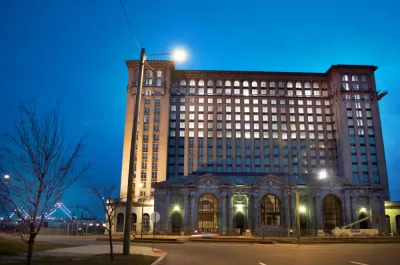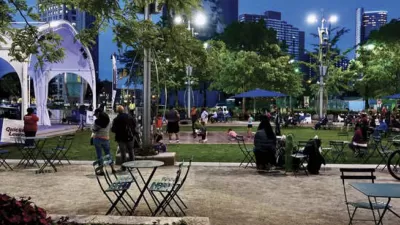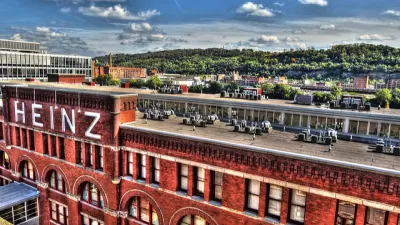Americans living in legacy cities face a unique set of challenges and opportunities in recovering from the COVID-19 pandemic. Several local, state, and federal support strategies could aid these cities in recouping losses.

America's legacy cities, think older industrial cities like Detroit, Cleveland, St. Louis, Pittsburgh, and Buffalo and Rochester, N.Y., are faced with unique and unprecedented challenges during the COVID-19 pandemic, says Lavea Brachman. With historical roots as key players in the industrial and manufacturing economies, legacy cities have experienced decades of high rates of unemployment with many residents facing chronic poverty and material insecurity.
"Putting these places on the road to recovery and prosperity is key to mitigating harmful regional imbalances in the U.S. economy, and their demographic legacies make them linchpins in the country’s efforts to achieve greater racial equity," writes Brachman. "Ensuring prosperity in these cities will not only yield economic benefits for our nation but also advance social progress."
Brachman's article goes on to lay out five reasons "why legacy cities could be hit harder than other places" as well as three unique advantages possessed by legacy cities during crises. According to Brachman, collaboration is a necessity for driving a racially equitable recovery in legacy cities. One key point: intentionally creating economic points of entry to capital investment for minority entrepreneurs and entrepreneurs of color. "Local innovation—along with state and federal policies and supports—and a promising new generation of local leaders can drive such a recovery."
FULL STORY: The perils and promise of America’s legacy cities in the pandemic era

Planetizen Federal Action Tracker
A weekly monitor of how Trump’s orders and actions are impacting planners and planning in America.

Chicago’s Ghost Rails
Just beneath the surface of the modern city lie the remnants of its expansive early 20th-century streetcar system.

San Antonio and Austin are Fusing Into one Massive Megaregion
The region spanning the two central Texas cities is growing fast, posing challenges for local infrastructure and water supplies.

Since Zion's Shuttles Went Electric “The Smog is Gone”
Visitors to Zion National Park can enjoy the canyon via the nation’s first fully electric park shuttle system.

Trump Distributing DOT Safety Funds at 1/10 Rate of Biden
Funds for Safe Streets and other transportation safety and equity programs are being held up by administrative reviews and conflicts with the Trump administration’s priorities.

German Cities Subsidize Taxis for Women Amid Wave of Violence
Free or low-cost taxi rides can help women navigate cities more safely, but critics say the programs don't address the root causes of violence against women.
Urban Design for Planners 1: Software Tools
This six-course series explores essential urban design concepts using open source software and equips planners with the tools they need to participate fully in the urban design process.
Planning for Universal Design
Learn the tools for implementing Universal Design in planning regulations.
planning NEXT
Appalachian Highlands Housing Partners
Mpact (founded as Rail~Volution)
City of Camden Redevelopment Agency
City of Astoria
City of Portland
City of Laramie





























